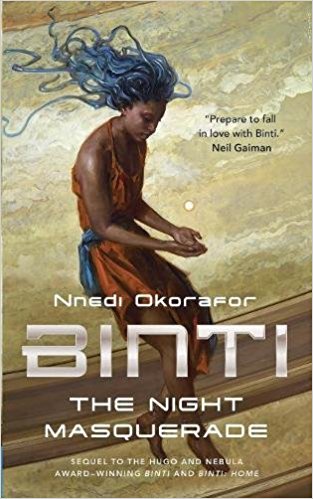 The Night Masquerade (Binti, #3) by Nnedi Okorafor
The Night Masquerade (Binti, #3) by Nnedi Okorafor Formats available: paperback, ebook, audiobook
Series: Binti #3
Pages: 208
Published by Tor.com on January 16th 2018
Purchasing Info: Author's Website, Publisher's Website, Amazon, Barnes & Noble, Kobo, Bookshop.org
Goodreads
The concluding part of the highly-acclaimed science fiction trilogy that began with Nnedi Okorafor's Hugo- and Nebula Award-winning BINTI.
Binti has returned to her home planet, believing that the violence of the Meduse has been left behind. Unfortunately, although her people are peaceful on the whole, the same cannot be said for the Khoush, who fan the flames of their ancient rivalry with the Meduse.
Far from her village when the conflicts start, Binti hurries home, but anger and resentment has already claimed the lives of many close to her.
Once again it is up to Binti, and her intriguing new friend Mwinyi, to intervene--though the elders of her people do not entirely trust her motives--and try to prevent a war that could wipe out her people, once and for all.
Don't miss this essential concluding volume in the Binti trilogy.
My Review:
I picked up The Night Masquerade because we saw the absolutely, totally, completely marvelous Black Panther over the weekend, and I was looking for more Afrofuturism. Then I remembered that the final book in the Binti Trilogy was already out, and why hadn’t I read it already?.
So here we are.
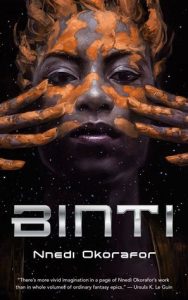 Admittedly, one reason why I hadn’t read The Night Masquerade already was because as much as I adored the first book, Binti, the second book, Home left me with a much more mixed reaction. Binti herself spent much of Home feeling fairly muddled, and as I read it I was muddled right along with her.
Admittedly, one reason why I hadn’t read The Night Masquerade already was because as much as I adored the first book, Binti, the second book, Home left me with a much more mixed reaction. Binti herself spent much of Home feeling fairly muddled, and as I read it I was muddled right along with her.
Although now that I have finished The Night Masquerade I am highly tempted to go back and reread Home. Now that I see where things were headed, the journey feels as though it had a lot more depth.
In Home, it seemed as if Binti, desperate for home, had gone back and discovered that, as the classic title goes, “you can’t go home again.”. In The Night Masquerade, the situation seems even worse. She discovers that while home may be the place that when you have to go there, they have to let you in, once they’ve opened the door there is nothing to stop them from stabbing you in the back as you walk past.
Binti may be physically home, but the people that she thought were hers reject her and everything about her that makes her what they perceive as anathema. Binti is different. Binti has left the Himba. Because the Himba don’t leave that turns Binti from “one of us” into a dangerous outsider.
She has also discovered that she is more than just Himba. Her father was one of the Desert People. While the Himba perceive the Desert People as barbarian savages, the truth is otherwise. As it usually is.
And the use of her talents as “harmonizer” aboard the sentient ship Third Fish (the events of Binti) have both grown her talent and made her a part of the non-human Meduse as well. She has become more, but her people (her own immediate family excepted) perceive her as being less.
The neighboring Khoosh people, on the other hand, see Binti’s Meduse friend Okwu as a enemy, and rain war and destruction on the Himba in frustration that Okwu and Binti are nowhere to be found.
Bintu gives her life in an effort to make peace, only to be struck down at the moment of her greatest achievement.
But just as on her first journey, the one where she should have died the first time, it’s not merely that what does not kill her makes her stronger, but that what kills her does too.
Escape Rating A: While The Night Masquerade is not as fresh as the first book, Binti, quite possibly because Binti herself is not as fresh and new as she was at the start of her journey, it still marks a return to the page-turning fascination of that first book.
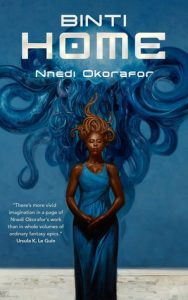 In Binti, we saw her first, sometimes tentative steps into the wider universe, not in spite of but because of the tragedy that she survives aboard Third Fish. In Home, Binti is searching for who she is now, trying to harmonize all of the various parts of herself that she has discovered or that she has absorbed. And she flails around a bit. (Don’t we all at 17?)
In Binti, we saw her first, sometimes tentative steps into the wider universe, not in spite of but because of the tragedy that she survives aboard Third Fish. In Home, Binti is searching for who she is now, trying to harmonize all of the various parts of herself that she has discovered or that she has absorbed. And she flails around a bit. (Don’t we all at 17?)
But in The Night Masquerade Binti is finally on the road to who she is meant to be. Her journey is far from complete, even though it is nearly cut short. In this final book in the trilogy, she ultimately manages to reach past her own doubts and fears and take control of her future, by embracing all the disparate aspects of her identity.
A significant part of the story is Binti’s internal journey, as she sees the limitations of her own people’s worldview and chooses to deliberately move beyond it, in spite of her doubts and fears. And in spite of the cost.
It’s a difficult and dangerous journey, made even more so by the shortsightedness of entirely too many people on all sides. But watching Binti come into her own is absolutely fantastic. If you like coming-of-age stories, especially when combined with a heroine’s journey, I think (and hope) you will love Binti’s story as much as I did.
Reviewer’s Note: NoveList has just released beautiful posters featuring Afrofuturism and Afrofantasy in honor of the fantastic movie Black Panther. The posters are gorgeous, but of course not remotely comprehensive of either genre. However, Nnedi Okorafor is the only author featured on both posters. Look for the posters AND the books at your local library.
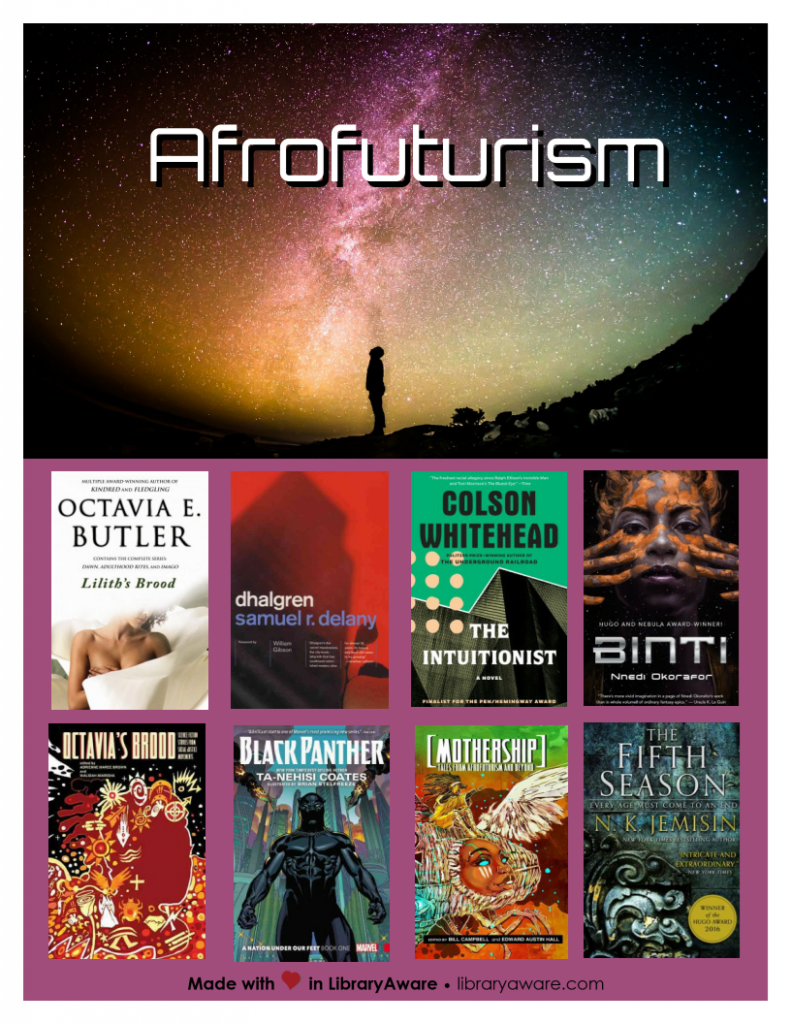

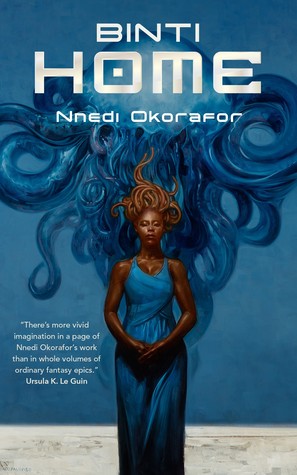 Home (Binti, #2) by
Home (Binti, #2) by 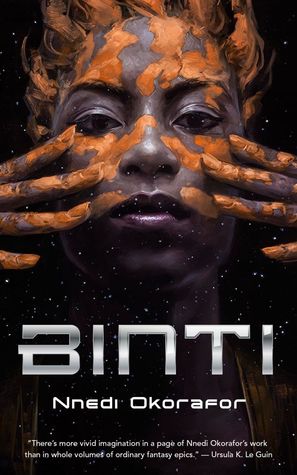 Binti (Binti, #1) by
Binti (Binti, #1) by